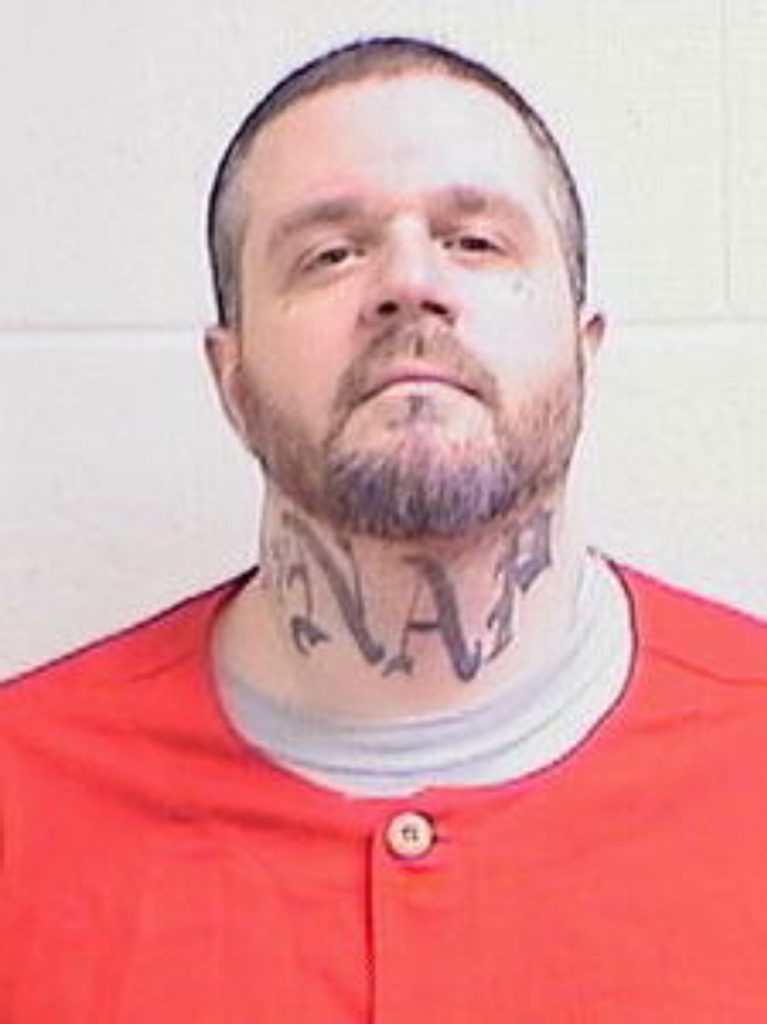MICHIGAN CITY, Ind. (AP) — Benjamin Ritchie, a 45-year-old Indiana man convicted of the 2000 killing of Beech Grove Police Officer Bill Toney, is scheduled to receive a lethal injection on Tuesday. This execution marks Indiana's second in 15 years, taking place at the Indiana State Prison in Michigan City, before sunrise, barring any last-minute court interventions.
Ritchie has spent over 20 years on death row after being found guilty of fatally shooting Officer Toney during a foot chase. The 31-year-old officer, who had served two years on the Beech Grove Police Department, was the first officer in the department to be killed by gunfire in the line of duty, leaving behind a grieving community of approximately 14,000 residents. Toney was remembered as a compassionate neighbor and dedicated public servant.
In December, Indiana resumed executions after a prolonged hiatus due to a nationwide shortage of lethal injection drugs. The prison officials recently revealed photographs of the execution chamber, which is described as resembling a sparse operating room equipped with fluorescent lighting, a gurney, a floor drain, and a nearby viewing room.
Among the 27 states that enforce death penalty laws, Indiana stands out as one of only two states—along with Wyoming—that prohibits media witnesses during executions. The Associated Press and various media organizations have recently filed a federal lawsuit seeking access to these executions. This upcoming execution forms part of a broader schedule of 12 executions across eight states in the current year, with Ritchie’s execution alongside two others in Texas and Tennessee taking place this week.
The events leading to Toney's death involved Ritchie, who at just 20 years old participated in the theft of a van in Beech Grove. During the chase that ensued, he fired four shots at Toney, concluding in the officer's death. At the time of the incident, Ritchie was already on probation for a prior burglary conviction.
In a clemency hearing held last week, Toney's relatives expressed their hope for the execution to proceed. Dee Dee Horen, Toney's widow, stated, "It’s time. We’re all tired," indicating a desire to close this painful chapter and honor Toney's life rather than focus on his death.
Ritchie’s legal team has made concerted efforts to contest the death penalty, arguing that his trial counsel was ineffective in presenting evidence related to his fetal alcohol spectrum disorders and childhood exposure to lead. They assert that Ritchie suffers from significant brain damage due to his mother's substance abuse during pregnancy, which has compromised his decision-making ability. He was diagnosed with bipolar disorder in 2005. Ritchie's attorney, Steven Schutte, argues that he has developed coping skills and is a changed person after decades in prison.
Indiana Governor Mike Braun recently denied Ritchie’s clemency request, following the parole board's recommendation. The board cited numerous violations Ritchie committed while incarcerated, reinforcing their view that his case did not warrant sentence commutation. The Indiana Supreme Court further declined to halt the execution, although two justices hinted that the jury had not received complete information regarding Ritchie’s brain injury.
Ritchie's attorneys are continuing to appeal this decision in federal court while also petitioning the U.S. Supreme Court. Disability rights advocates assert that Ritchie’s brain damage should preclude him from facing the death penalty, emphasizing that his capacity to understand the wrongfulness of his actions was significantly impaired at the time of the crime.
Recent communications from Ritchie indicate a shift in his perspective over the years. He expressed remorse for his actions, stating he regretted how he interacted with Toney’s widow during the trial. Ritchie noted, “I wish I could go back to the day in court... that punk kid should have just kept his mouth shut.” During his final days, he has received visits from family and friends, allowing him a small circle of support before the execution. Under Indiana law, he is permitted to have up to five witnesses present at his execution, which will include attorneys and friends.











